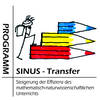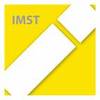Involved European projects
FIBONACCI is mainly based on the projects Pollen and SINUS-Transfer, but also other European projects are involved.
Pollen (EU)
The Pollen project (2006-2009) was oriented towards the creation of Seed cities involving schools and other partners in a decisive effort to consolidate IBSME at grassroots level. This has paved the way for further expansion of inquiry scientific education. Pollen Seed Cities have acquired outstanding experience in IBSME implementation based on a systematic approach.
SINUS and SINUS-Transfer (Germany)
The German SINUS programme was initiated after the outcome of the 1996/1997 TIMS-Study. This study proved clearly that German students had obvious weaknesses and a common lack of understanding when confronted with math and science problems.
SINUS started throughout the Federal Republic with 180 schools involved.
In 2003 the German programme SINUS-Transfer started aiming at the dissemination of the results of SINUS on a much larger scale. SINUS-Transfer was carried out in two parts (2003 till 2005; 2005 till 2007) with about 1800 schools involved.
IMST (Austria)
The Institute of Instructional and School Development (IUS) conducts the national large-scale project IMST (Innovations in Mathematics, Science and Technology Teaching) which aims at improving instruction in mathematics, science, IT and related subjects. The focus is on students’ and teachers’ learning.
The project involves about 5000 teachers across all Austria who participate in projects, attend conferences or cooperate in regional and thematic networks. In order to investigate the impacts of IMST, evaluation and research is integrated on all levels.
Intergeo (EU)
- offer content in a searchable and metadata-tagged portal.
- enable users to use their software of choice by specifying a common file format based on open standards.
- test available material in the classroom. All stakeholders, software teams, resource authors, teachers and learners will be involved, in order to promote quality enhancement cycles.
Klein Project (international)
The Klein Project is inspired by Felix Klein’s famous book Elementary Mathematics from an Advanced Standpoint, published one century ago. It is intended as a stimulus for mathematics teachers, so to help them to make connections between the mathematics they teach, or can be asked to teach, and the field of mathematics, while taking into account the evolution of this field over the last century.
The project will have three outputs:
- a book simultaneously published in several languages;
- a resource DVD to assist teachers wishing to bring some of the ideas to realisation in their classes;
- a wiki-based web-site seen as a vehicle for the many people who will wish to contribute to the project in an on-going way.




